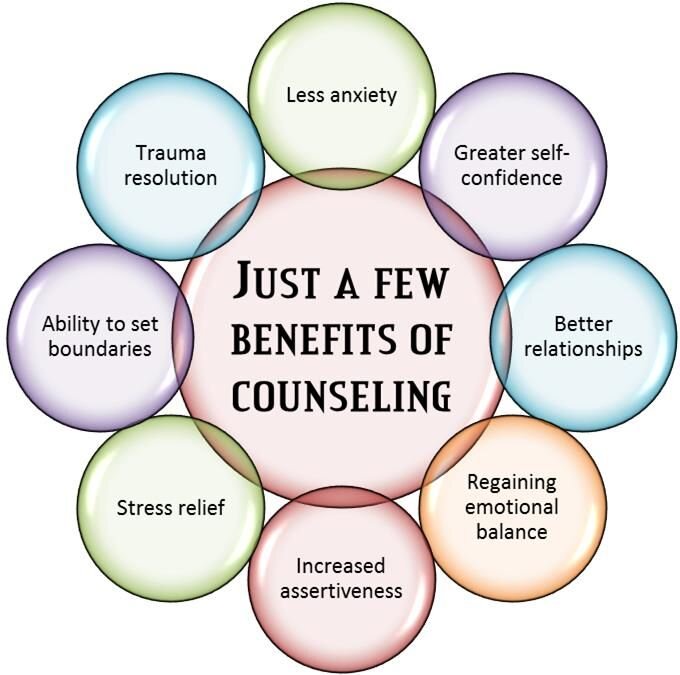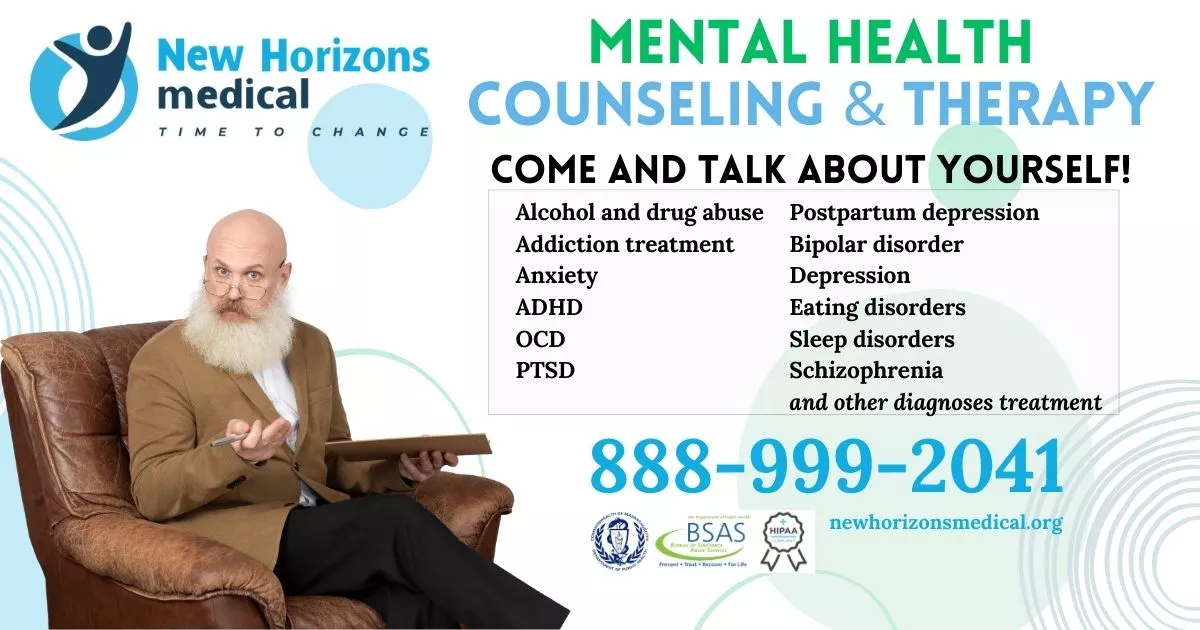Your Ultimate Guide to Finding and Using Mental Health Resources Near You
Unlocking the Secrets of Mental Health: A Summary of Therapy and Therapy Alternatives
Psychological health and wellness is a complicated and essential facet of general health. Many counseling and treatment choices exist to deal with different emotional obstacles. Each strategy uses distinct benefits and methods tailored to private requirements. Recognizing these options is crucial for anybody seeking to improve their mental wellness. Marriage Counselling. What variables should one take into consideration when exploring these opportunities? The response might expose a course to a healthier psychological state
Recognizing Mental Health And Wellness and Its Relevance
Mental wellness encompasses the emotional, emotional, and social well-being of individuals, substantially affecting how they think, really feel, and act. Its significance can not be overemphasized, as it affects every aspect of life, consisting of relationships, work performance, and total high quality of life. People with excellent mental wellness often tend to cope with anxiety better, maintain much healthier relationships, and make notified decisions. Alternatively, poor mental health and wellness can cause emotional distress, damaged functioning, and various mental illness, which may require expert intervention. Understanding mental health and wellness is crucial for recognizing the indications of distress and the need for assistance. Recognition additionally advertises empathy and reduces stigma, motivating people to seek aid when necessary. By focusing on mental wellness, communities can cultivate environments that support emotional wellness, inevitably bring about healthier, much more durable people. This foundation functions as a critical action towards effective mental health counseling and treatment options.
Kinds Of Counseling Strategies
Counseling approaches differ commonly, each customized to fulfill the unique demands of individuals looking for assistance. Among the most common types are cognitive-behavioral treatment (CBT), which concentrates on determining and altering adverse thought patterns, and person-centered therapy, which highlights empathy and approval. Psychodynamic therapy checks out past experiences and unconscious procedures to recognize current behavior, while solution-focused brief therapy intends to determine remedies as opposed to investigate problems.Additionally, family treatment addresses relational characteristics and interaction within households, cultivating healthier communications. Team therapy gives a common area for individuals to share experiences and sustain each other. Various other methods include existential treatment, which urges people to find definition and purpose, and art or songs therapy, which uses innovative expression as a healing tool. Each strategy supplies distinct techniques and approaches, allowing clients to find one of the most ideal technique for their individual growth and recovery trips.
Discovering Various Treatment Modalities
In the domain of psychological health and wellness therapy, various treatment modalities supply distinct strategies to treatment. Cognitive Behavior modification stresses the link in between behaviors and thoughts, while Psychodynamic Treatment explores unconscious impacts on psychological health. Additionally, Mindfulness-Based Methods promote present-moment recognition as a way to boost emotional regulation and total mental wellness.
Cognitive Behavior Therapy
Cognitive Behavior Modification (CBT) attracts attention as one of one of the most extensively practiced and researched techniques in psychological health treatment. This approach concentrates on the affiliation in between behaviors, sensations, and ideas, emphasizing that changing adverse idea patterns can lead to boosted psychological wellness and behavioral modifications. CBT is structured, commonly including a limited variety of sessions, and intends to furnish people with sensible skills to manage their signs and symptoms. It is effective for a selection of conditions, consisting of anxiousness disorders, depression, and post-traumatic anxiety problem. By making use of techniques such as cognitive restructuring and direct exposure therapy, CBT fosters strength and equips clients to challenge challenges head-on, making it an important choice in the landscape of psychological health treatments.
Psychodynamic Therapy Approaches
Psychodynamic treatment approaches offer a deep exploration of the unconscious mind and its impact on habits and psychological well-being. Rooted in Freudian theory, these methods highlight the value of very early childhood years experiences and unconscious problems. With methods such as complimentary association, desire evaluation, and transference, people get insight right into their sensations and ideas, fostering self-awareness and understanding. This restorative technique encourages clients to uncover repressed feelings and unsettled problems, which can be pivotal in resolving existing emotional challenges. By checking out the interaction between present behaviors and previous experiences, psychodynamic treatment aims to promote psychological healing and personal development. Eventually, it offers a structure for individuals to explore intricate inner dynamics that influence their mental wellness.

Mindfulness-Based Techniques
While standard treatments often concentrate on past experiences, mindfulness-based strategies focus on present-moment awareness as a path to emotional health. These strategies, including mindfulness-based cognitive treatment (MBCT) and mindfulness-based stress and anxiety reduction (MBSR), encourage individuals to involve totally with their ideas and sensations without judgment. Practitioners find out to observe their psychological states, cultivating a better understanding of psychological triggers and reactions. This method not just eases signs of anxiousness and anxiety however also boosts total psychological strength. By incorporating mindfulness workouts, such as reflection and deep breathing, clients cultivate a sense of tranquility and quality. wikipedia reference Ultimately, mindfulness-based methods empower individuals to navigate life's challenges with enhanced awareness and acceptance, promoting a healthier connection with their ideas and emotions.
The Role of a Specialist or Therapist
A competent specialist or therapist plays an essential duty in sustaining people through their psychological health and wellness trips. They offer a safe, non-judgmental space where clients can share their thoughts and sensations honestly. Couples Therapy. By using various therapeutic strategies customized to each individual's needs, therapists aid customers discover underlying problems that might add to their psychological health and wellness challenges.Therapists supply support and tools to cope with stress and anxiety, anxiousness, depression, and various other emotional troubles. Their training equips them to acknowledge patterns in actions and assumed procedures, promoting insights that result in personal growth. They additionally foster a strong therapeutic alliance, which is important for successful outcomes.Moreover, therapists continue to be fully commited to discretion and honest standards, guaranteeing a relying on environment. Eventually, the duty of a specialist or therapist is to encourage people, motivating them to establish strength and healthier coping methods while steering through life's intricacies
Just how to Choose the Right Therapy or Therapy Choice
Choosing the ideal counseling or treatment alternative starts with reviewing specific needs. It is crucial to understand individual obstacles and goals before checking out various treatment designs. This foundational step can substantially influence the performance of the selected strategy.
Analyze Your Requirements

Just how can people efficiently examine their psychological health and wellness requires when reviewing therapy or therapy alternatives? First, they need to assess their emotion and determine certain problems, such as partnership, depression, or anxiety challenges. Journaling can be a valuable tool for tracking thoughts and feelings in time. Additionally, individuals might benefit from looking for comments from relied on pals or member of the family relating to viewed modifications in actions or mood. It is additionally useful to review personal objectives for therapy, such as improving coping skills or getting understanding into personal patterns. Looking into various therapy methods and their viability for particular requirements can help in making an enlightened selection. Eventually, self-awareness plays an essential function in choosing the right course for psychological wellness assistance.
Explore Therapy Styles
While going across the varied landscape of treatment choices, individuals must consider various styles of counseling to find the very best suitable for their distinct demands. Cognitive Behavior Modification (CBT) concentrates on transforming unfavorable idea patterns, while Psychodynamic Treatment explores subconscious processes and past experiences. Humanistic approaches highlight personal development and self-actualization, promoting a helpful setting. Furthermore, mindfulness-based treatments cultivate present-moment understanding, helping emotional guideline. For those seeking framework, Solution-Focused Quick Therapy targets certain objectives and services. Team therapy supplies a public setting for common experiences and assistance. Inevitably, people ought to assess their preferences, comfort degrees, and certain difficulties, ensuring they choose a healing design that resonates with their personal journey towards mental health.
Getting Rid Of Barriers to Looking For Assistance

The Benefits of Therapy and Therapy for Psychological Wellness
Seeking aid for psychological wellness challenges can lead to significant improvements in general well-being. Therapy and treatment provide people with a risk-free room to discover their try this out ideas and sensations, fostering self-awareness and personal development. These professional services outfit customers with coping approaches and problem-solving skills tailored to their unique situations.Moreover, therapy can minimize signs and symptoms of stress and anxiety, anxiety, and other psychological health conditions, enhancing emotional durability. Regular sessions advertise accountability and urge people to set and achieve individual objectives. With various restorative methods, such as cognitive-behavioral therapy or mindfulness techniques, customers learn to reframe adverse ideas and create healthier behaviors.Additionally, the therapeutic relationship itself can be a resource of support, aiding to combat seclusion and solitude. Overall, involving in therapy and therapy is a positive step toward achieving mental wellness, making it possible for individuals to lead even more satisfying lives.
Frequently Asked Concerns
The Length Of Time Does Counseling or Therapy Commonly Last?
The period of therapy or treatment varies considerably, usually lasting from a couple of sessions to numerous months or years. Variables affecting this include the individual's particular needs, the kind of treatment, and restorative goals.
What Should I Anticipate During My Initial Session?
During the first session, people can anticipate an introduction, conversation of problems, and the specialist's approach. They might complete evaluations and establish goals, fostering a secure atmosphere for open communication and building relationship.

Are There Any Type Of Dangers Connected With Therapy?
Treatment can entail risks, such as psychological discomfort, susceptability, or facing uncomfortable memories. While these obstacles might arise, they can likewise lead to personal growth and recovery, making the healing procedure facility yet potentially gratifying.
Exactly How Can I Tell if My Therapist Is an Excellent Fit?
Establishing if a specialist is a good fit involves evaluating comfort, interaction design, and therapeutic approach. Favorable relationship and development towards goals are indications of a suitable suit, crucial for efficient psychological health assistance.
Will My Insurance Coverage Cover Therapy or Therapy Sessions?
Determining insurance protection for counseling or therapy sessions frequently needs calling the insurance company directly. Plans vary substantially, so individuals should validate benefits, co-pays, and any kind of required pre-approvals prior to going after therapy services. Amongst the most usual types are cognitive-behavioral therapy (CBT), which concentrates on recognizing and transforming adverse thought patterns, and person-centered treatment, which stresses compassion and acceptance. Psychodynamic therapy discovers previous experiences and unconscious processes to comprehend present actions, while solution-focused brief therapy aims to determine services rather than explore problems.Additionally, household therapy addresses relational dynamics and interaction within households, promoting much healthier communications. Various other techniques include existential therapy, which urges people to discover significance and purpose, and art or music therapy, which makes use of imaginative expression as a restorative device. Cognitive Behavioral Therapy stresses the connection in between ideas and actions, while Psychodynamic Therapy discovers subconscious influences on psychological wellness. Cognitive Behavior Treatment (CBT) focuses on altering adverse thought patterns, while Psychodynamic Treatment checks out previous experiences and unconscious processes.